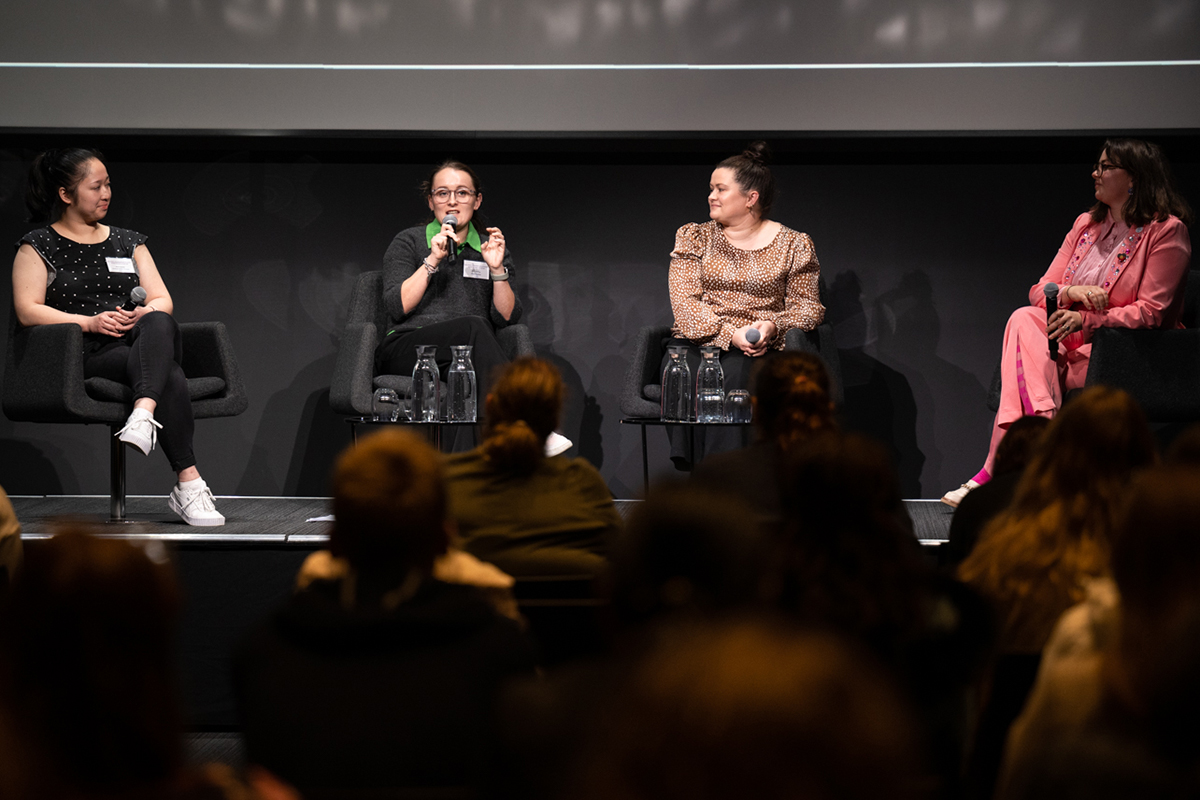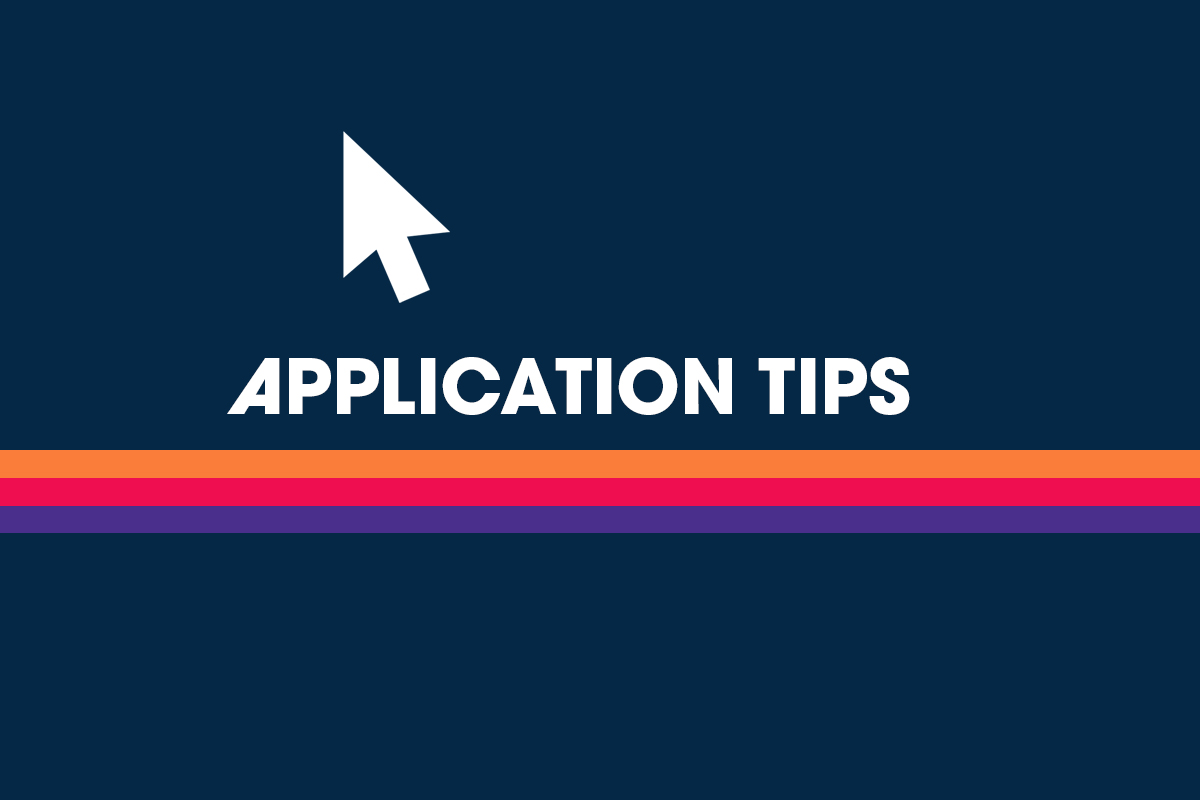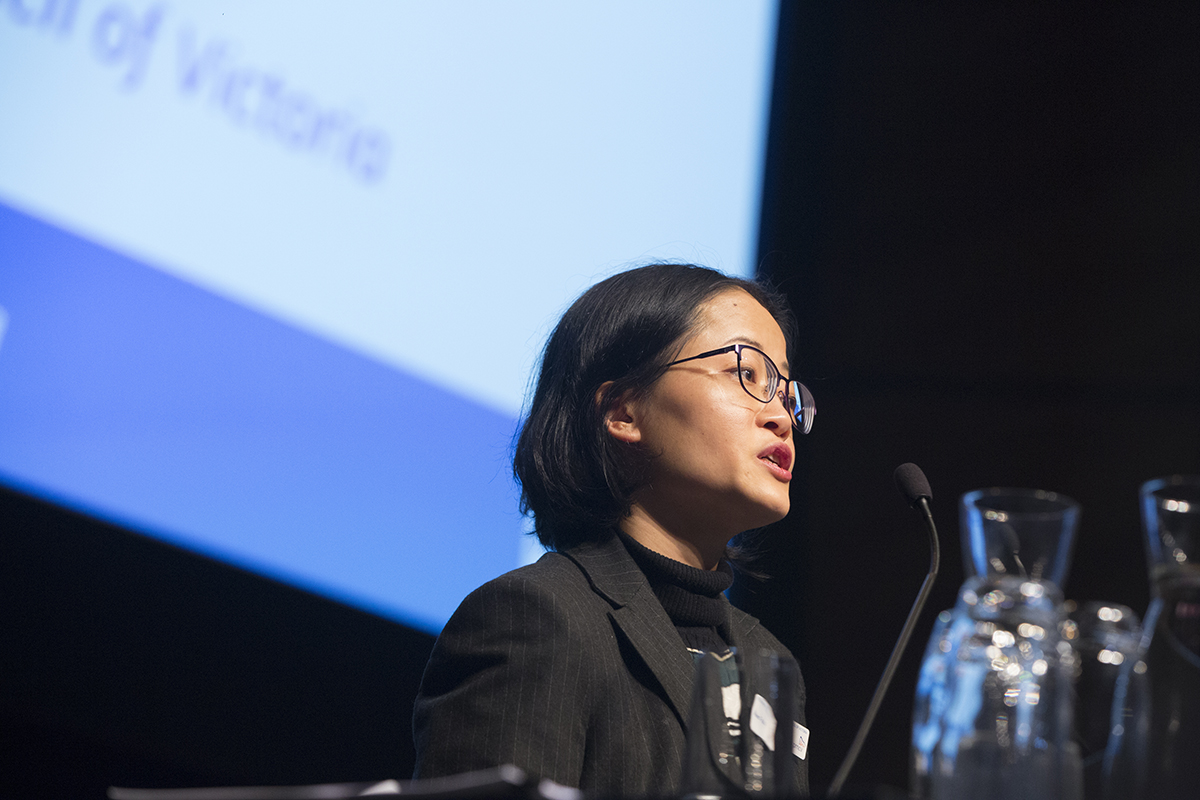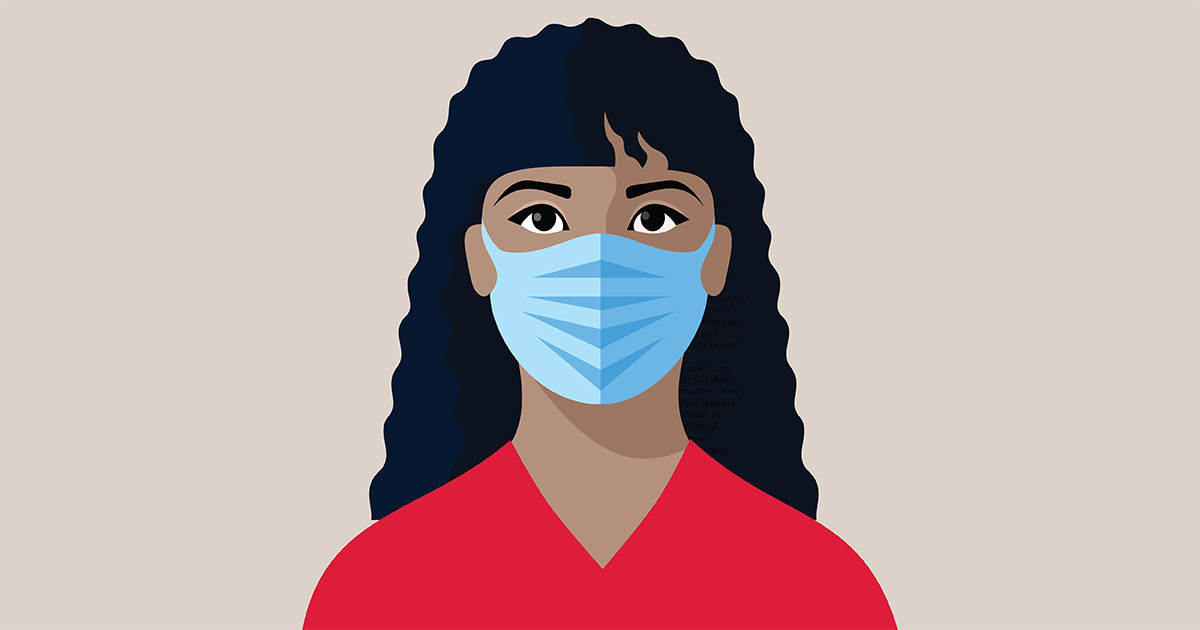
Graduates speaking about their experiences at the ANMF 2023 UGSSD. Photo: Penny Stephens. Friday 19 May 2023
Did you miss attending our undergraduate student study day? Here’s some golden nuggets from the presentations.
1. Students should be part of the change
‘You don’t expect the government to pay us to have babies!’ When ANMF (Vic Branch) Secretary Lisa Fitzpatrick was a Job Rep in 1986, she said the older nurses thought the idea of paid parental leave was ludicrous.
It took over a decade of campaigning by public sector nurses and midwives to achieve two weeks paid parental leave. Fast forward to 2023 and now there’s 14 weeks, with the qualifying period reduced to six months for those in the public sector.
Lisa said attitudes have evolved and urged students to be part of that improvement. Negotiations begin in October for the new public sector enterprise bargaining agreement (EBA) for general nurses and midwives. This EBA will set out pay and conditions for RUSON/RUSOMs and/or graduates. Members should regularly read communications from ANMF as updates will be communicated via newsflashes, On the Record and e-news.
2. Your application letter is an opportunity to sell yourself
Each year graduate coordinators thousands of applications. Many of these are discarded due to sloppy mistakes.
Cecilia Ly from Austin Health said your application should look professional visually, with attention paid to fonts, margins, layout. It’s also important there are no mistakes so have someone proofread it.
She explained cover letters should carefully balance providing information but not too much. You want the recruiter to be enticed to invite you for an interview – not exhausted by the end.
3. Be professional but be yourself during your interviews
Carolyn Price from St Vincent’s Private said its okay to be nervous, ‘nerves are good – they show you care.’
Even if you’re recording a video interview you should still dress to show you’re serious about the job.
If you’re completing a PMCV match online video or invited to a virtual interview, check your equipment before recording. Ensure you have a soundproof and well-lit space. You could always do practice interviews with a friend via Zoom or Facetime to prepare.
4. Be prepared for a transition shock
Your graduate year will be exciting, but you will be in for a steep learning curve that could leave you feeling anxious, insecure, inadequate and isolated.
Monash University lecturer Erin Wakefield says this is completely normal and every graduate has experienced some form of transition shock. The key is to recognise when this is happening and talk to your educators and colleagues. You won’t feel alone.
Glenn Taylor, CEO of Nursing and Midwifery Health Program Victoria (NMHPV) encouraged all students and grads to reach out for free and confidential support. All NMHPV staff are nurses and midwives themselves with extra training to assist you.
5. Your pay and conditions are determined by your award or EBA
Not every job in Victoria has the same wages and conditions, so research your working conditions before you apply. There are extra allowances and rates that can boost your pay packet, but it all depends on your EBA.
Assistant Secretary Paul Gilbert explained Victorian nurses and midwives are covered by either an award (known as the Modern Award which sets the legal minimum wages and conditions), or an EBA which is a collective agreement negotiated by ANMF on your behalf. The public sector EBA sets the benchmark for the private acute sector.




